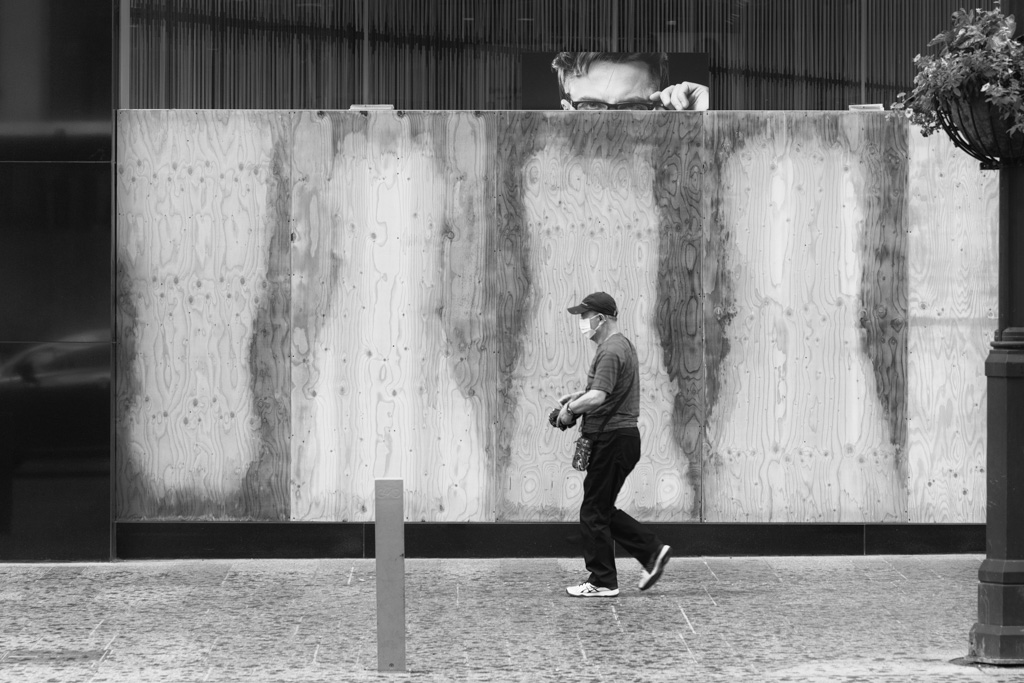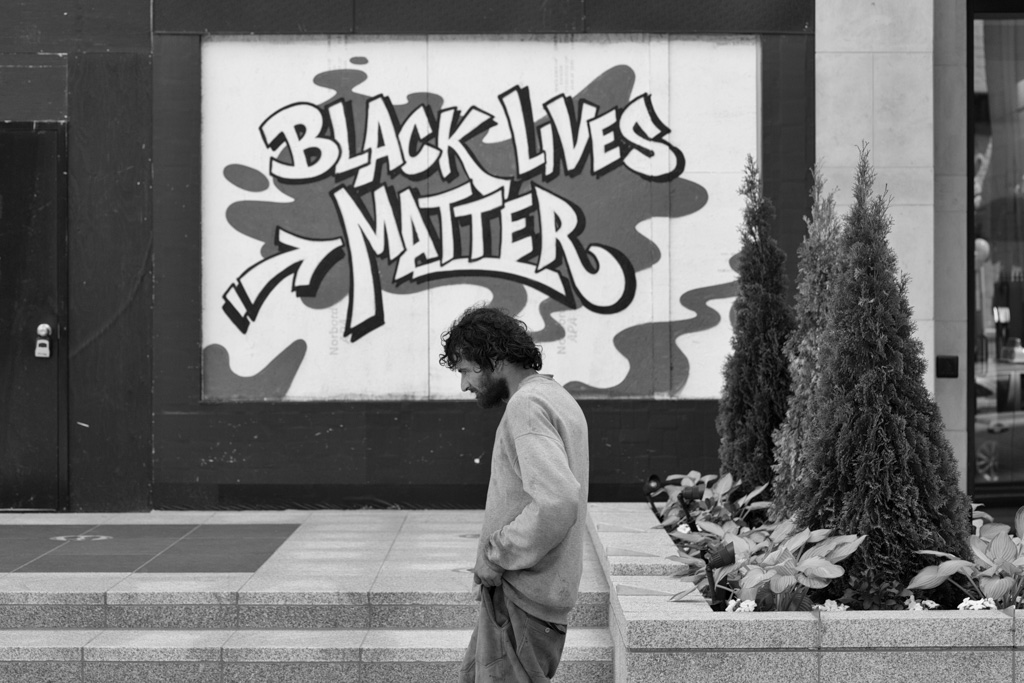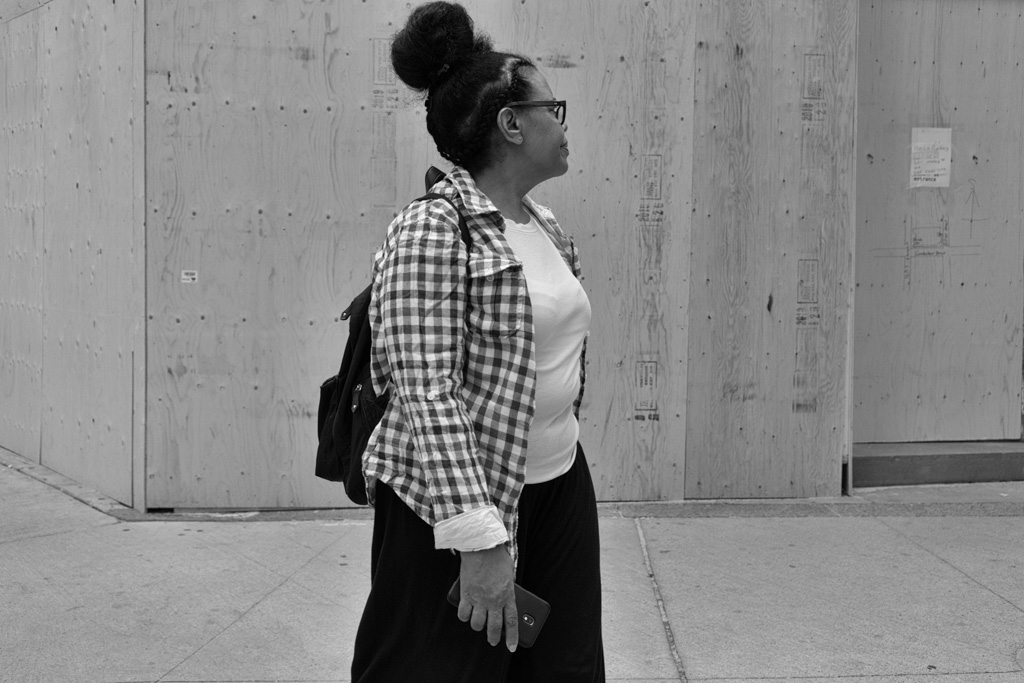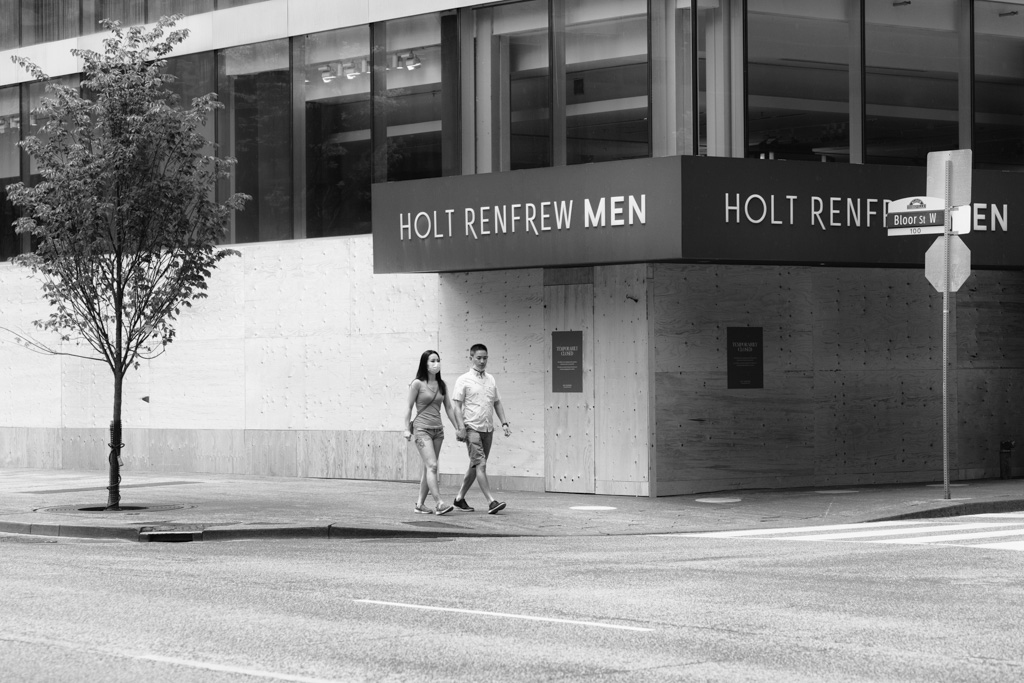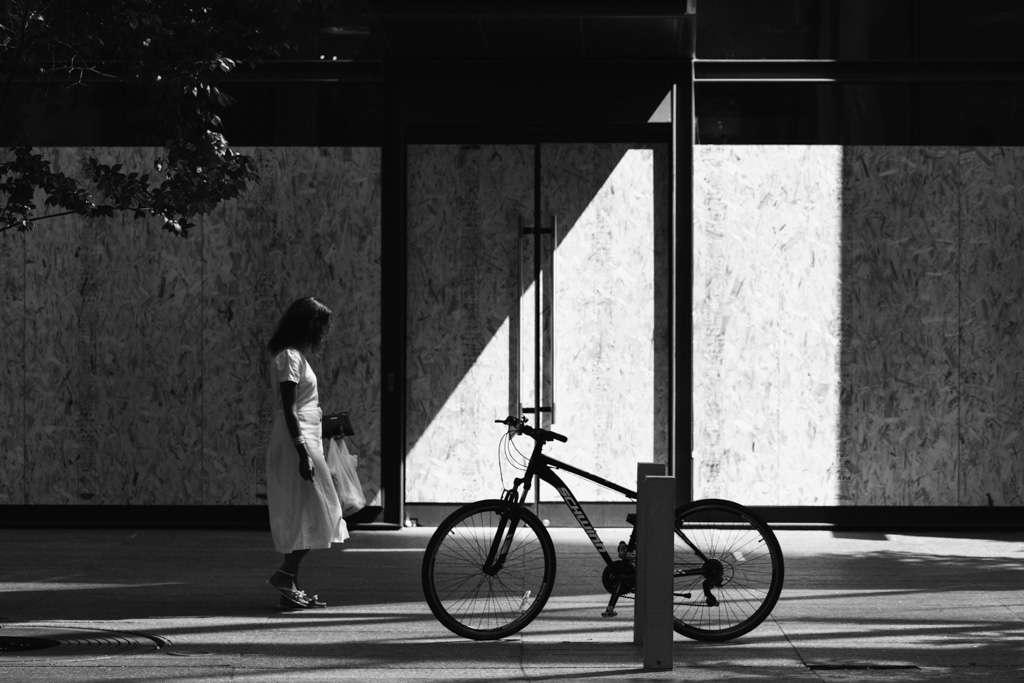The history of Toronto retail in 2020 will be framed in terms of carpentry (forgive the pun). A threat appears and the immediate response is to cover all the windows with plywood to keep marauding hoards from smashing things. I expect if I owned a retail business with frontage on a busy street, I’d do the same thing. Even so, it does reflect a pessimistic view of human nature.
In March, when Covid-19 first came to town, many of the city’s tonier shops threw up plywood and directed customers to their websites. At the end of May, more influenced by economists than by health professionals, leaders throughout the globe sounded the all clear and the plywood came down overnight.
A week later, as people took to the streets to protest the murder of George Floyd, it occurred to people that some of that action might bleed across the border. Although Doug Ford tried to persuade himself on camera that we in Canada don’t have a history of racism like they do down south, retailers made a more realistic appraisal of the situation. If the window-smashing could happen in Minneapolis and Philadelphia and DC, then it could happen here, too. After all, it’s the 10th anniversary of the Toronto G20 summit and we all remember what happened to our store windows back then. And so the plywood went up again. Soon, people will sound the all clear and the plywood will come down again. And after that?
Retail’s on-again off-again love affair with plywood strikes me as endemic to Canadian culture. I doubt it’s uniquely Canadian; I’m sure there are other places in the world that resort to plywood when it looks like the windows could break. Even so, it does reflect a stereotypically Canadian attitude—a default assumption that people are trustworthy. Store windows are wide and bright and, even when the stores are closed, we can pass those windows and stare at the goods on display. The owners aren’t worried that we’ll smash their windows and steal their goods. Plywood is an exceptional measure.
It’s worth noting that most places in the world do not share that default assumption. For example, in the UK, when a shop closes for the night, the last person to leave doesn’t turn out the lights and lock the door. They turn out the lights, lock the door, and roll down a metal barrier so no one can smash the glass when the premises are untended. Retailers in the UK have a default assumption that people are NOT trustworthy.
Something tells me that 2020 will be the year when the default assumption in Canada flips. As retailers grow tired of setting up and tearing down plywood sheets on 2×4 spruce stud frames, they’re going to shift to more convenient solutions. I don’t want to see this happen. I like the openness that the current arrangement implies. But if I were a retailer, that’s what I would do.
